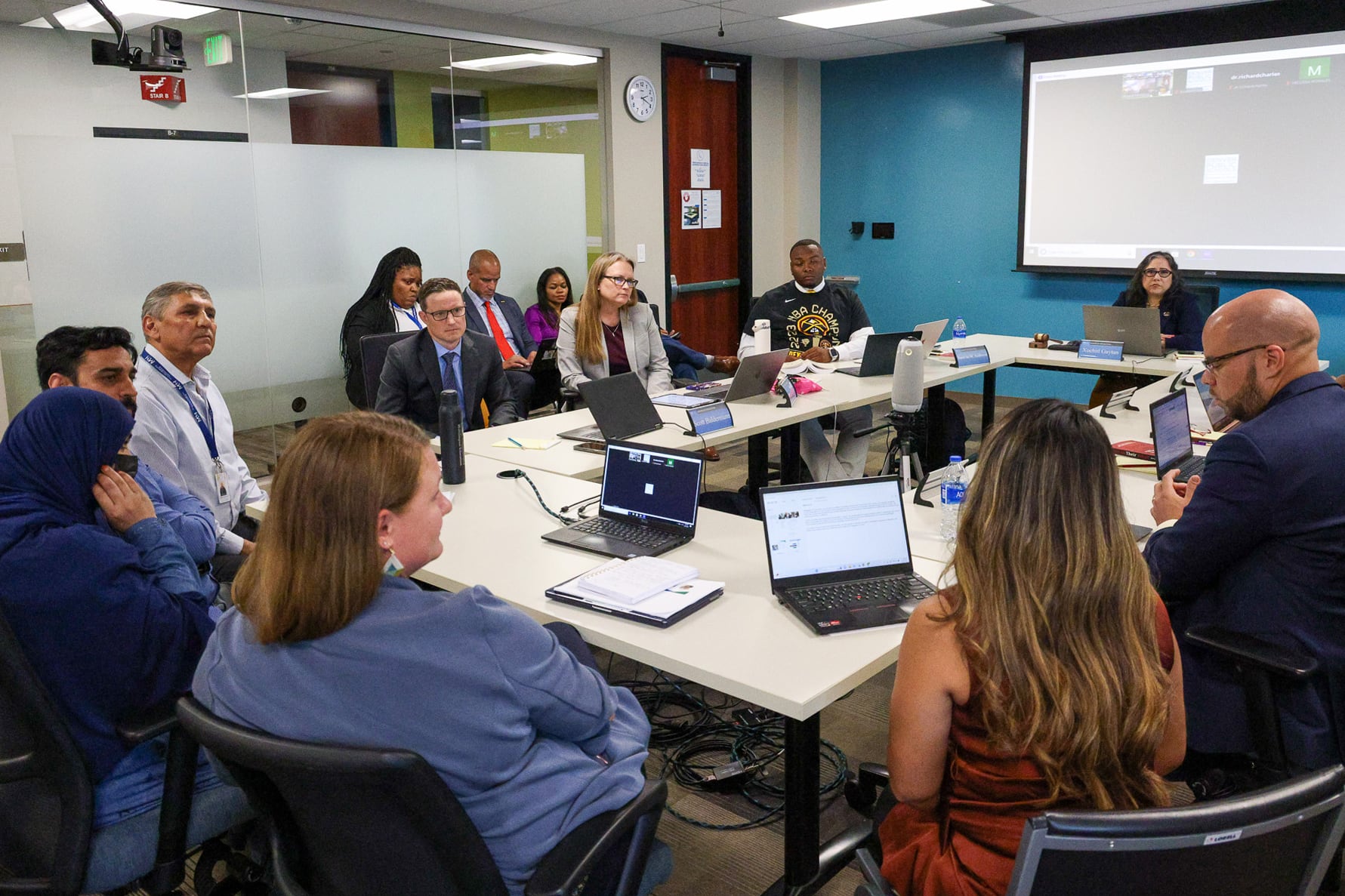Sign up for Chalkbeat Colorado’s free daily newsletter to get the latest reporting from us, plus curated news from other Colorado outlets, delivered to your inbox.
The Denver school board has revived a proposal to quadruple members’ pay to up to $33,000 a year, and most members voiced support for the idea at a meeting Thursday.
The board is set to vote on the proposal Nov. 16, which would be after next week’s school board election but before the new board members are sworn in.
Three of the seven Denver school board seats are up for election Nov. 7. Only newly elected or reelected board members would be eligible for the higher pay.
The board first considered this proposal in February but put it on hold because backers said it wasn’t ready. On Thursday, several members said raising pay would attract more diverse candidates to run for the school board, which one member called “a full-time job on top of a full-time job.”
“It’s definitely a problem that we don’t attract people to do this job because it doesn’t pay,” said board member Charmaine Lindsay, calling the current stipend ”a minimal amount of money.”
Only one board member, Scott Baldermann, said he was opposed. He said he agrees with raising pay but that the board needs to first have a more robust conversation about board member spending. Baldermann previously raised concerns about the lack of a policy on how much board members can spend on expenses such as traveling to conferences, which added up to more than $40,000 last fiscal year, according to the Denver Post.
A board policy passed in 2021 allows Denver board members to be paid up to $8,250 a year, with the rate to increase each year in accordance with inflation.
But not all seven board members are eligible to receive the pay. That’s because the 2021 state law allowing school board compensation doesn’t let sitting board members raise their own pay, and three of the current members were among those who voted on the first pay policy.
District records show only three board members were paid in the last fiscal year. Scott Esserman and Michelle Quattlebaum were paid the most, more than $13,000 each, which is a combination of pay and public employee retirement benefits. Board President Xóchitl “Sochi” Gaytán got more than $12,000 in pay and retirement benefits.
Esserman, Quattlebaum, and Gaytán would not be eligible for the $33,000, though they would continue to receive the lower pay. The same would be true for board member Carrie Olson, who is halfway through her second term on the board but has not requested any pay.
Only the three board members elected on Nov. 7 would be eligible. Two current board members, Baldermann and Lindsay, are running to keep their seats.
The new proposal would allow board members to be paid up to $150 per day, five days a week — which is the maximum under state law. The board does not meet in July, so board members are only paid 11 months out of the year, hence the $33,000. The current policy allows board members to be paid up to $150 per day, five days a month.
Many Colorado elected officials draw salaries, though the amounts vary widely. Denver City Council members are paid $110,595 annually. The city council president makes $123,846.
At least two other Colorado school boards, in Aurora and Sheridan, have voted to pay their members. Aurora board members elected next week will be eligible for up to $450 a month. Sheridan board members can’t get paid for regular meetings, but can request $150 a day for conferences and board retreats.
Denver would be the only Colorado school board paying the maximum under the law if board members approve the increase.
Melanie Asmar is a senior reporter for Chalkbeat Colorado, covering Denver Public Schools. Contact Melanie at masmar@chalkbeat.org.








